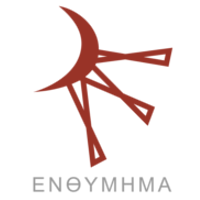Prospettivismo felino e profondità saggistica in Montaigne e Smart.
DOI:
https://doi.org/10.13130/2037-2426/8007Abstract
Michel de Montaigne, nella sua Apologie de Raymond Sebond, porta come esempio di relativismo conoscitivo i giochi che fa con la sua sua micia domestica, innalzando il punto di vista della bestiola allo stesso livello di validità di quello umano. Anche nel Jubilate Agno di Christopher Smart il gatto Jeoffry ricopre un compito simile, seppure con modalità più superomistiche e magniloquenti. Ciò che accomuna i due scrittori e il loro rapporto con l’alterità felina è il voler attenuare le spinte verso un dogmatismo universalizzante in favore di un’allure di domesticità e familiarità che classificano i testi come frutto di una soggettività finita e imperfetta. Proprio in virtù di questo “addomesticamento” delle pulsioni generalizzatrici, si vogliono leggere i gatti alla stregua di espedienti letterari animati dalla figura del bathos, corrispettivo speculare del sublime descritto da Pseudo-Longino.
In the Apology of Raymond Sebond Montaigne relates his intimate pastime with his kitten as an example of cognitive relativism, granting the domestic animal’s point of view the same validity of the human perspective. In Christopher Smart’s Jubilate Agno Jeoffry the cat is appointed the same rhetorical duty, if with a more magniloquent attitude. What is common to both authors’ approach to the feline other is the mitigating of the universalising drives in favour of a domestic and familiar tone, which classify the texts as the work of a finite and often imperfect subjectivity. It is in this perspective of a taming of the generalizing desires that the two cats are to be investigated: as literary devices which spring from a very peculiar trope, the bathos, i.e. the specular correlative of Longinus’ sublime.
Downloads
Riferimenti bibliografici
Adorno, Theodor W. Note per la letteratura. Torino: Einaudi. 2012, Stampa.
Agamben, Giorgio. L’Aperto. L’uomo e l’animale. Torino: Bollati Boringhieri. 2002, Stampa.
Aulotte, Robert. Montaigne. Apologie de Raymond Sebond. Paris: SEDES. 1979, Stampa.
Bacon, Francis. The Proficience and Advancement of Learning. London: William Pickering. 1840, Stampa.
Barthes, Roland. Sade, Fourier, Loyola. Paris: Seuil. 1971, Stampa.
Boswell, James. Life of Samuel Johnson. Including Boswell’s Journal of a Tour to the Hebrides and Johnson’s Diary of a Journey into North Wales. Volume I (1709-1765). Ed. George Birbeck Hill. New York: Harper & Brothers. 1887, Stampa.
Clemente di Alessandria. Gli Stromati. Ed. Giovanni Pini e Marco Rizzi. Milano: Paoline. 2006, Stampa.
Conches, Marcel. Montaigne ou la coscience heureuse. Paris: PUF. 2008, Stampa.
Curry, Neil. Christopher Smart. Devon: Northcote House Publishers. 2005, Stampa.
Dearnley, Moira. The Poetry of Christopher Smart. London: Routledge and Kegan Paul. 1968, Stampa.
Derrida, Jacques. L’animal que donc je suis. Paris: Editions Galilée. 2006, Stampa.
Descartes, René, Oeuvres. Ed. Charles Adam e Paul Tanney. Paris: 1902. Stampa.
Elam, Keir, “Questionable aphorisms: momenti nella storia (sofferta) dell’aforisma inglese.” Teoria e storia dell’aforisma. Ed. Gino Ruozzi. Milano: Bruno Mondadori, 2004. 106-123. Stampa.
Eliot, George. The Mill on the Floss. Ed. C. T. Chris. New York and London: Norton, 1994. Stampa.
Frampton, Saul. When I am playing with my cat, how do I know she is not playing with me?: Montaigne and being in touch with life. New York: Pantheon Books. 2011.
Gigante, Denise. Life: Organic Form and Romanticism. New Haven and London: Yale University Press. 2009, Stampa.
Karremann, Isabel. “Human/Animal Relations in Romantic Poetry”, European Journal of English Studies. 2015. 19(1), 94-110.
Keats, John. Letters of John Keats: Volume 1, 1814-1818. Ed. Hyder Edward Rollins. Cambridge: Cambridge University Press, 2012. Stampa
Longino. Del Sublime. Ed. Francesco Donadi. Milano: BUR. 2013, Stampa.
Melville, Herman. Opere scelte, Tomo II. Ed. Claudio Gorlier. Milano: Mondadori. 1995, Stampa.
Montaigne, Michel de. Les Essais. Ed. Pierre Villey. Paris: PUF. 1978, consultabile in The Montaigne Project: https://www.lib.uchicago.edu/efts/ARTFL/projects/montaigne/. Web. 20 settembre 2016.
Musil, Robert. Sulla Stupidità e altri scritti. Ed. Andrea Casalegno. Milano: Mondadori, 1986. Stampa.
Plutarco. Moralia. Ed. Giuliano Pisani. Pordenone: Edizioni Biblioteca dell’Immagine, 1989. Stampa.
Pope, Alexander. The Major Works. Ed. Pat Rogers. Oxford: Oxford University Press. 2009, Stampa.
Sanders, Scott Russel. “The Singular First Person.” Sewanee Review. 1988. 96(4), 658-672.
Smart, Christopher. The Collected Poems of Christopher Smart. Ed. Norman Callan. London: Routledge and Kegan Paul. 1949, Stampa.
Stara, Arrigo, La tentazione di capire e altri saggi. Firenze: Le Monnier. 2006, Stampa.
Taylor, Charles. Sources of the Self. Cambridge (CA): Harvard University Press, 1989. Stampa.
Tosi, Renzo. “I Greci: gnomai, paroimai, apophtegmata.” Teoria e storia dell’aforisma. Ed. Gino Ruozzi. Milano: Bruno Mondadori, 2004. 1-16. Stampa.
Dowloads
Pubblicato
Come citare
Fascicolo
Sezione
Licenza

Except where otherwise noted, the content of this site is licensed under a Creative Commons Attribution 4.0 Unported License.
Accettato 2017-05-08
Pubblicato 2017-06-27





